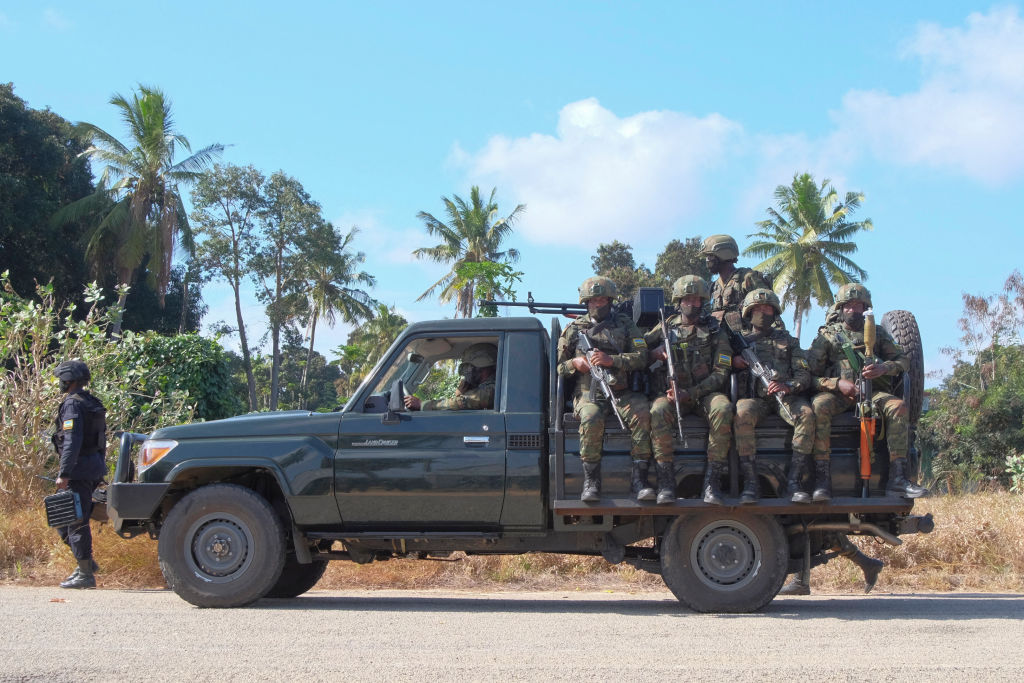As peacekeeping missions are scaled back or shut down in Africa, the Rwanda Defence Force (RDF) is gaining a reputation for stepping in to effectively fill security gaps.
In the Central African Republic, the RDF since 2020 has protected high-ranking officials from rebel groups, trained young Central African Soldiers and deployed more than 2,000 forces to the United Nations peacekeeping mission in the country. Brig. Gen. Ronald Rwivanga, RDF spokesman, said the CAR’s security situation is now “relatively calm.”
“We successfully repelled the rebels,” Rwivanga told The Africa Report. “We are protecting the president, the city of Bangui and a few sites around the capital, such as the houses [of the president] in Damara.”
In Mozambique’s Cabo Delgado province, Rwandan forces have provided security since 2021 and remained after the departure of the Southern African Development Community Mission in Mozambique. Rwandan forces in Mozambique have grown from 1,000 to about 5,000, and their operations have expanded to cover five districts, according to the Pretoria-based Institute for Security Studies.
Terrorists still launch sporadic attacks, but Rwivanga said Cabo Delgado’s security situation is stable as the RDF has helped force insurgents to retreat into dense forests.
“The move into the forests in search of safety has hurt the insurgents because we have cut off their access to the Indian Ocean, an essential route for connecting with the large ISIS networks operating in Africa,” Rwivanga told Agência de Informação de Moçambique, the country’s national news agency. “All the coastal areas have been cleared. We have blocked access to food and communication.”
Rwanda’s willingness to deploy troops on its own is unique on a continent where most interventions are multilateral. Some countries see this as an advantage.
“Unlike multilateral peacekeeping forces that require cumbersome bureaucratic mechanisms, Rwanda can deploy troops quickly,” Federico Donelli, an assistant professor of international relations at the University of Trieste in Italy, wrote for The Conversation. “Second, the involvement of Rwandan troops under a bilateral agreement appears easier to manage than a multinational army under a regional or international organisation.”
Rwandan analyst and lawyer Gatete Nyiringabo Ruhumuliza views the country’s deployments, which he terms “values-driven bilateral missions,” as the next logical step in interventions.
“The future of peacekeeping is bilateral,” Nyiringabo told The Africa Report. “Rwanda is a pioneer of that — in CAR and Cabo Delgado.”
Rwanda also contributes about 1,650 troops to the United Nations Mission in South Sudan. They conduct security patrols, protect civilians and internally displaced people, provide humanitarian logistics support, and conduct civil-military work such as medical outreach and educational workshops, while also working on infrastructure projects.
Success in these and other missions has bolstered the RDF’s reputation as a strong, disciplined tech-savvy force of about 35,000 Soldiers.
“Rwanda wants to shift its global image away from one of a country scarred by genocide to one of a country that’s risen to a position of influence on the continent,” Donelli wrote in an article published by The Conversation. “It projects the image of a continental security provider.”

